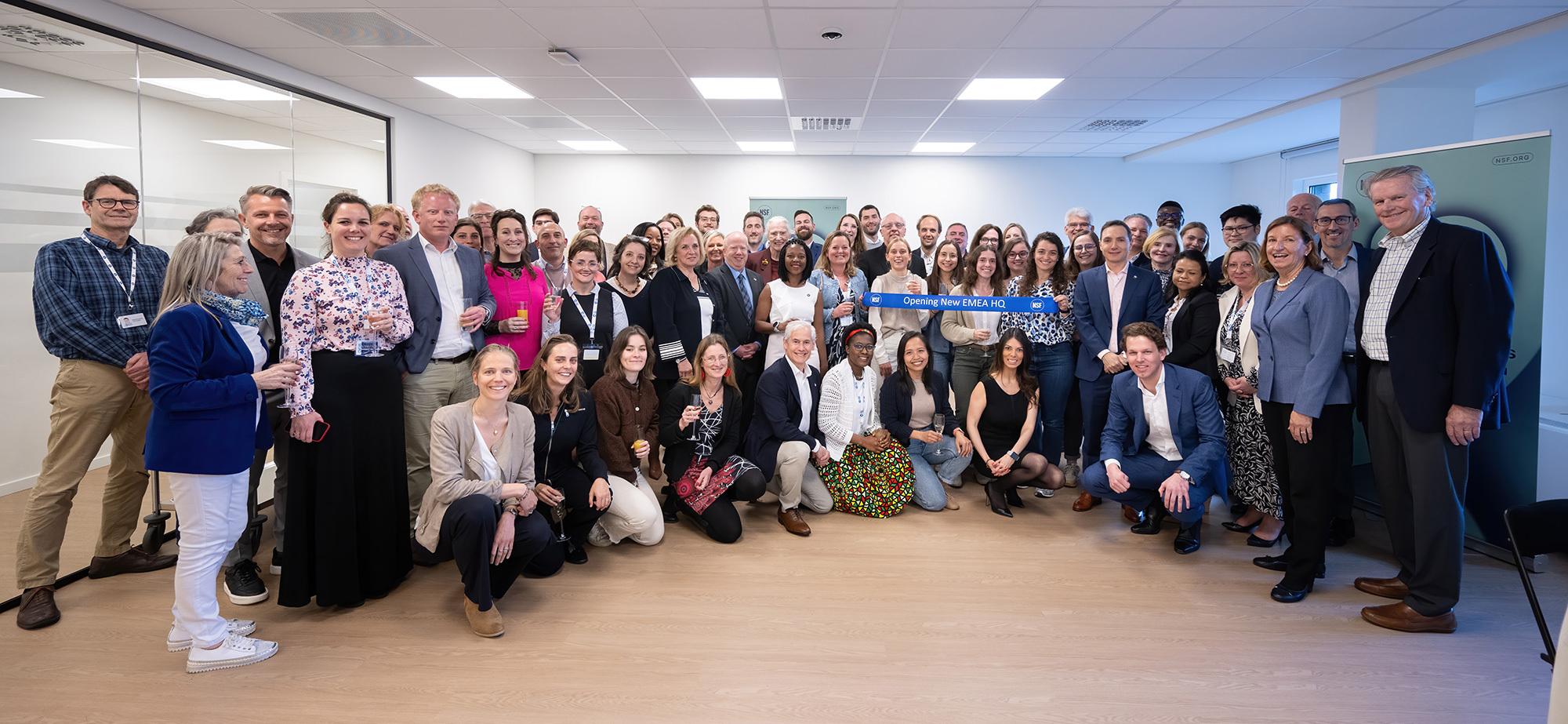Remediating Pharmaceutical Quality Systems

Much of NSF’s pharma consulting work involves helping companies remediate flawed quality systems. This article looks at why issues arise that necessitate a remediation project. We also provide an array of NSF resources that, we hope, will help you and your company to tackle difficult remediation-related issues.
This usually occurs because of threatened or actual enforcement action by regulatory agencies. In these circumstances, companies are desperate and willing to do whatever it takes without a full understanding of what that means. While expansive in concept, “whatever it takes” often ends up meaning deploying internal and external resources to design and document a new quality management system. This is a significant commitment by management in resources, but unless the cause (how did this happen?) is also considered, the effort is doomed to fail.
How Did This Happen?
The answer to this question is almost universally organizational culture.
Most companies are surprised by this answer and find it difficult to imagine. Most companies truly believe they are committed to quality, and most make the pursuit of quality part of their corporate mission statements. However, failing to address organizational culture as a root cause during the remediation initiative will not create a successful outcome. We often meet senior leaders of firms who are willing to invest in quality systems and processes, but we find that they do not understand that there is an underlying issue in the organizational culture that needs to change to support quality initiatives. Unfortunately, without a true culture of quality built into the DNA of your organization, most quality improvement projects will fail. Worse still, such a failure could lead to even more aggressive and difficult regulatory enforcement action.
Global Managing Director for NSF Pharmaceutical and Dietary Supplements Consulting, takes viewers through a case study of a recent remediation project where a UK company had their license suspended.
Our Role in the Remediation Process
Our experts have the experience, skills, and methodology needed to help a company design and document a world-class quality system. We also learned very early that this methodology must address the imperative of organizational cultural alignment, which is the most difficult part of a remediation project. As an example, many individuals are drawn to the health sciences industry by altruistic desires to help people and may be surprised by the idea that their cultures may not support quality principles. After all, what healthcare company doesn’t want to produce high-quality products? We provide tools to help companies look at their cultures more analytically.
Encouraging Self-Assessment
As part of our process, we encourage management to conduct a self-assessment of company policies and practices that influence employee behaviors. While most companies have stated values that support quality objectives, the extent to which management complies with these values determines employee behaviors.
Ask these questions:
- Does management override the quality assurance unit’s decision to withhold product release?
- Does management cut funding for the quality function before, or to a greater extent than, others?
- Does management recognize and reward quality achievements as it does financial ones?
- Does management effectively balance its needs and initiatives with its commitment to quality?
- The Importance of Understanding Your Own Quality System
An integral element of the NSF methodology addresses management’s responsibility to “walk the talk” and model the company’s quality values. We encourage the most senior executive managers to have at least one performance element related to quality. Our goal is that each member of the company’s senior executive management team has as intimate a knowledge of the state of the company’s quality system as he or she does its financial condition.
During a remediation project, our consultants work collaboratively on-site with the company to create a new system, coaching and mentoring throughout the project. Organizational values and principles, as well as an effective means to communicate them, are established by the top of the organization.
- Does your company have a communication plan?
- Does your company communicate collaboration, openness, and transparency?
- Does the communication plan clearly define who owns the process?
Reaching A Successful Conclusion
During the planning process, we can effectively counter organizational culture's negative impacts through open collaboration and communication. Recognizing that an antagonistic corporate culture can have its greatest negative impact at this point, we address cultural issues early in the process. This enables the company to operate in a quality-supportive coaching and mentoring environment, assuring ultimate success.
Pharma Remediation Resources
NSF’s team of industry experts and ex-regulators has written and presented extensively on their experiences of working on successful remediation projects for companies all around the world. Here are five of our most-read articles on the topic:
Strategic well-planned remediation is paramount to long-term sustainable corrections and corrective actions. Read this white paper by Maxine Fritz as she details a quality systems approach using the three Cs: company culture, communication, and collaboration.
A study of the pharma industry’s GMP remediation projects reveals a lot about us and our inability to focus only on what is truly valuable.
Develop an action plan for responding to statements of non-compliance, including warning letters and FDA Form 483s. Incorporate our practical remediation solutions into your overall quality system for long-term, sustainable compliance.
NSF supported a UK-based pharmaceutical manufacturer to address issues that resulted in an MIA suspension. This case study outlines our work to help restore the MIA, returning the client to full manufacturing.
What should a company do when they receive a warning letter from the FDA? Find out in our expert webinar.
How Can We Help?
NSF’s team of experts can help your company in many ways.
We can assist you with a pre-inspection audit to help you to get ready for an inspection from a regulatory authority.
Our training team works with companies around the world to drive improvements in human performance.
The NSF Pharma and Biotech consulting experts support companies throughout the product lifecycle and have extensive experience in supporting companies that have received warning letters from regulatory authorities.
Our experts can work with you to determine the best plan for you and your company. Simply complete the form below and one of our expert team will get back to you to start a conversation about how NSF can help you and your company.
Ready To Begin the Process?
Contact us with questions or to receive a quote.
How NSF Can Help You
Get in touch to find out how we can help you and your business thrive.

